|
Don't fall for the same lie we always hear... My hot take of the week: One of the biggest lies you hear over and over again in athletics is "Sports develop leadership."
I can tell you from my experience, we’ve definitely had some "leaders" on our team that weren't very good leaders at all. And some of them weren't any better by the time they graduated than when they started. We've all seen it on our own teams: "leaders" who are selfish, negative or self-absorbed. They contribute to the drama rather than prevent it. Once we get a dose of that, we quickly realize just how important it is to have good leaders on our team. The difference is night and day. When you think about it, our team leaders impact almost every aspect of our program and can totally make or break our job satisfaction as coaches. Our team's culture, cohesiveness and commitment are all directly impacted by the kind of leaders we have. Think about it this way: if sports actually developed leadership none of us would have these issues! So many less-experienced coaches can fall victim to this belief (I know I did!) because it's simple and convenient. If this were true it'd make life easy! If sports develop leadership, then I don’t have to. It should just "happen" on its own. It would be on auto-pilot. Like we've talked about the past few weeks, that's not exactly the way it works in real life. Fortunately though, all it takes is changing around a couple of words to turn the big lie into an even bigger truth: "Sports don't develop leadership. Great coaches develop leadership - if they're intentional about it." As soon as I realized it's not all about me, I started to think about things in a much more practical way... If we want a championship culture and a championship program, strong leaders are an absolutely required ingredient. And one of the best coaching lessons I've ever learned is that ingredient doesn't usually just add itself to the recipe.
Adding "strong leaders" to our coaching recipe The bottom line is that any strong team or strong program needs someone performing the functions of a team leader or captain, so if our athletes aren't handling this stuff, that means we are. Raise your hand if you'd like some more responsibilities on your plate, Coach?!
I mean, let's be honest: think about the years you've had great leaders in your program. One of the most valuable and under-appreciated benefits is it makes your life 10x easier by allowing you to comfortably delegate certain tasks, and freeing up your time to focus on the things that are most important for your program (and for you!). It's more than just that, though. Peers influence their teammates in ways you simply can't as a coach. There's a different, but super-important dynamic between teammates. They talk about the power of "peer pressure" for a reason! And it gets a bad rap! Peer pressure can be great if it's positive! And when you have strong, positive leaders on your team, that's exactly what you're getting. Earlier in my coaching career, taking the time to build leaders was definitely not something I was focused on. After all, I bought into the big lie: "sports build leadership"! Am I right?!
But when that didn't happen it really bit us in the ass. Our team never came together the way it needed to. Kids were self-absorbed and out for themselves. Everything was someone else's fault. The vibe was totally negative. It only takes one season of that to start asking yourself what you can do to make sure it never happens again! At least that's how it went for us. Something's gotta change When I realized we needed to be much more intentional about developing our leaders, I figured that started with me defining what, exactly, we wanted out of our leaders. We decided to create a job description for our leaders, but to start that process we asked our current (not-so-great) leaders to take a crack at it first. It was the end of our season and I asked them to write down what their responsibilities were as leaders that year. I didn't give them any other instructions. I really just wanted to see what they'd come up with. What I realized was there's a pretty big disconnect between what they saw as their role and what our coaches saw as their role. It's funny, but I realize now, there was really no one to blame for that but me. If we never took the time to teach them what we wanted them to do, how could we expect them to know?! I still have a picture of the list they came up with. I'll share it with our coaching staff every year or two. It's a good reminder about just how far off our kids' view of leadership is if we're not on top of teaching them our view. Check it out:
For those who can't read a 16-year-old's handwriting they wrote:
At the time, I remember looking at the list and being kind of annoyed at first, then laughing to myself. They weren't wrong about most of this stuff, but there was a lot more to it than that. I sat down with my coaches after that and said, "Guys, let's paint a picture of the perfect leader in our program. What would that kid look like?" We started by talking about what a good teammate should look like - shouldn't a good leader be a good teammate?! - and added to the list from there. We all had our own ideas and our own thoughts about what the perfect leader would look like. Each of us was able to add a unique perspective that, together, gave a pretty complete look into what great leaders should do and be in our program. We probably spent half an hour adding to this list. It grew and grew. I kept that list too. You can download your own copy of that list right here to use for your program. Looking at it now, the first thing that jumps out at me is there's a lot on there. Reading through the list we created, we realized that finding (or even training) a high school kid who'll be strong in all of these areas is never gonna happen. No one person can excel in all of these areas. And, honestly, with everything else our kids have going on in their lives - family, academics, friends, other extracurriculars, jobs, etc. - it's not fair or practical for us to expect all of that from a single person. We're setting ourselves up for disappointment. That led to another realization for us: if we want leaders who are strong in all these areas, and it's not possible for one person to do it all, then obviously we need many leaders. But that wasn't happening in our program and it doesn't happen in a lot of programs. Take a look back at the big lie from earlier: "Sports develop leadership." This leads to the 2nd big truth: "Great coaches develop leadership throughout their roster." If we want all of those leadership roles, qualities and characteristics in the list linked above to be a part of our program, we're going to need a whole bunch of kids to bring them collectively. So why not develop every kid on our team to be a leader? Now I realize that might meet with some skepticism from some of you, but hear me out here: I'm not talking about some kind of "participation trophy" culture where every kid gets to tell their friends they're a captain. I'm talking about building a system where every athlete brings their strengths from this list to the team to help make the team better. While it might not be possible for one kid to be a leader in all of these areas, it's certainly possible for each of our kids to be leaders in some of these areas. And, let’s be honest, none of us are perfect and none of us are robots, we all have good days and bad days, and to build a championship program we can't be dependent on one or two kids to be at their best as a leader every single day. With a team full of leaders, each of them is there to pick up the slack and lift each other up on the days they need it. When we have a team full of leaders, we'll always have some of our kids having a "good day" to step up and counteract the ones having a bad one. We're just smart enough now not to put all our eggs in one basket.
Don't put your eggs all in one basket, especially if that basket has a hole in it. The same, but different Now just because everyone's a leader, that doesn’t mean everyone has the same role. Some of your kids will be the ones leading your team in competition, but there might be some others who take the lead in organizing team events, helping teammates resolve their conflicts or even getting more fans to your games. We look at part of our job as coaches as helping every kid on our roster find a way they can be a leader. The more we have our kids filling these roles, the less my coaching staff and I have to do it. And not only is this delegation further developing our kids' leadership skills, but the easier it makes our jobs and the more time we have to focus on the what's most important in our program. What is it they say all the time? "The truth will set you free"? Well these three big truths have certainly set us free: Truth 1: Great coaches develop leadership... Truth 2: Great coaches develop leadership throughout their roster... Truth 3: Great coaches develop leadership throughout their roster, and make their own jobs 10x easier in the process! And who wouldn't want that in their own program?
Pete Jacobson - |




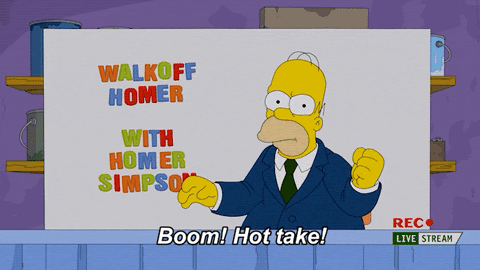
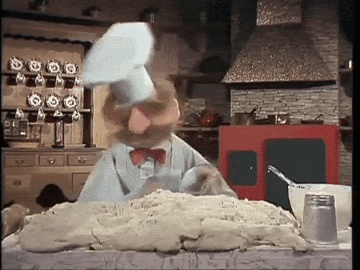
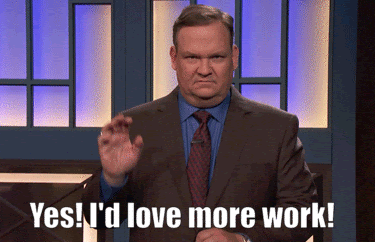
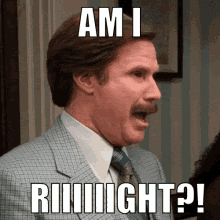
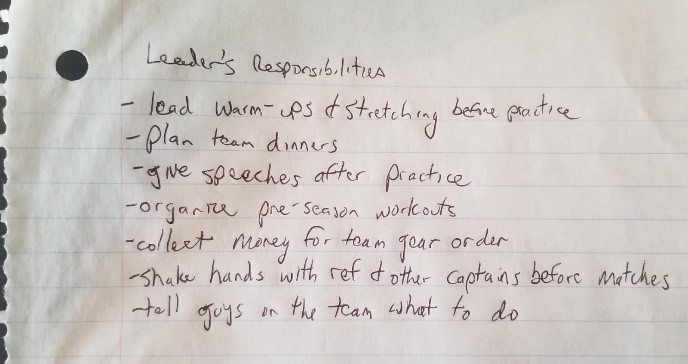
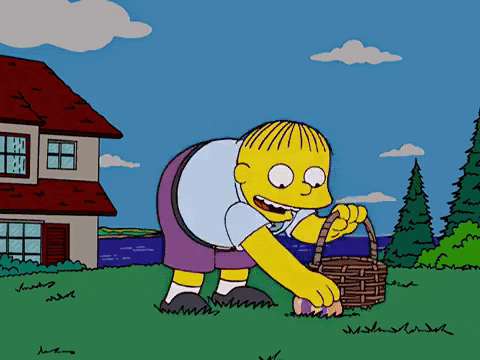
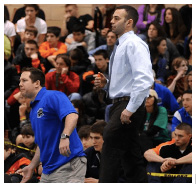 Pete Jacobson has been a varsity HS coach in New York for almost 20 years. He also works with coaches of all levels through
Pete Jacobson has been a varsity HS coach in New York for almost 20 years. He also works with coaches of all levels through 

